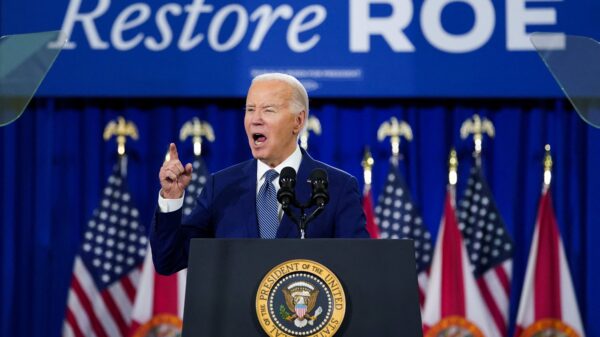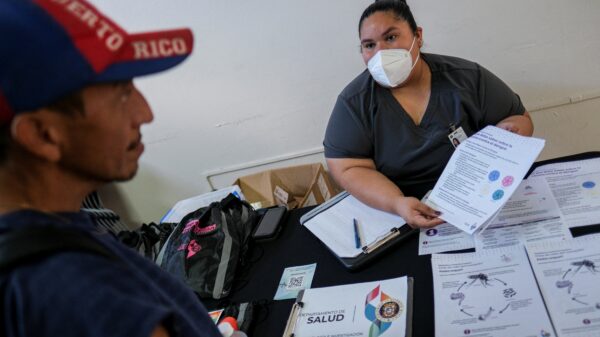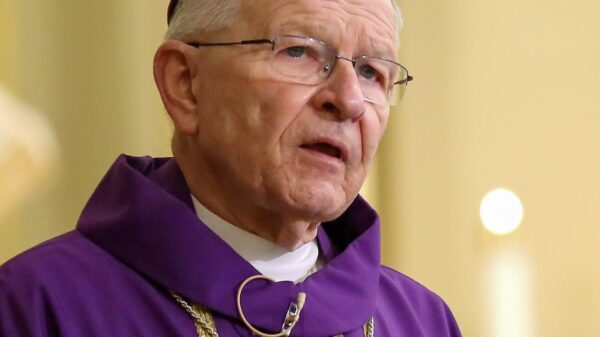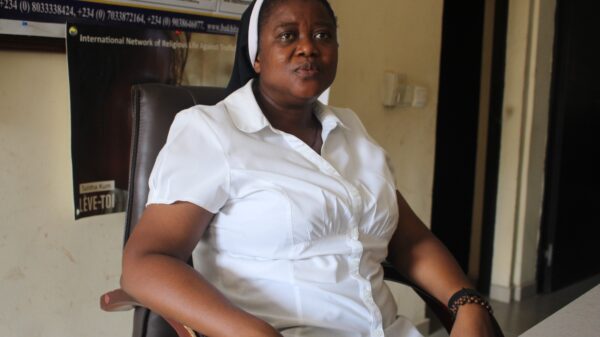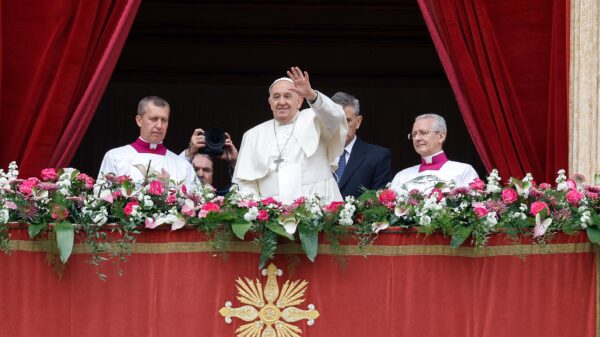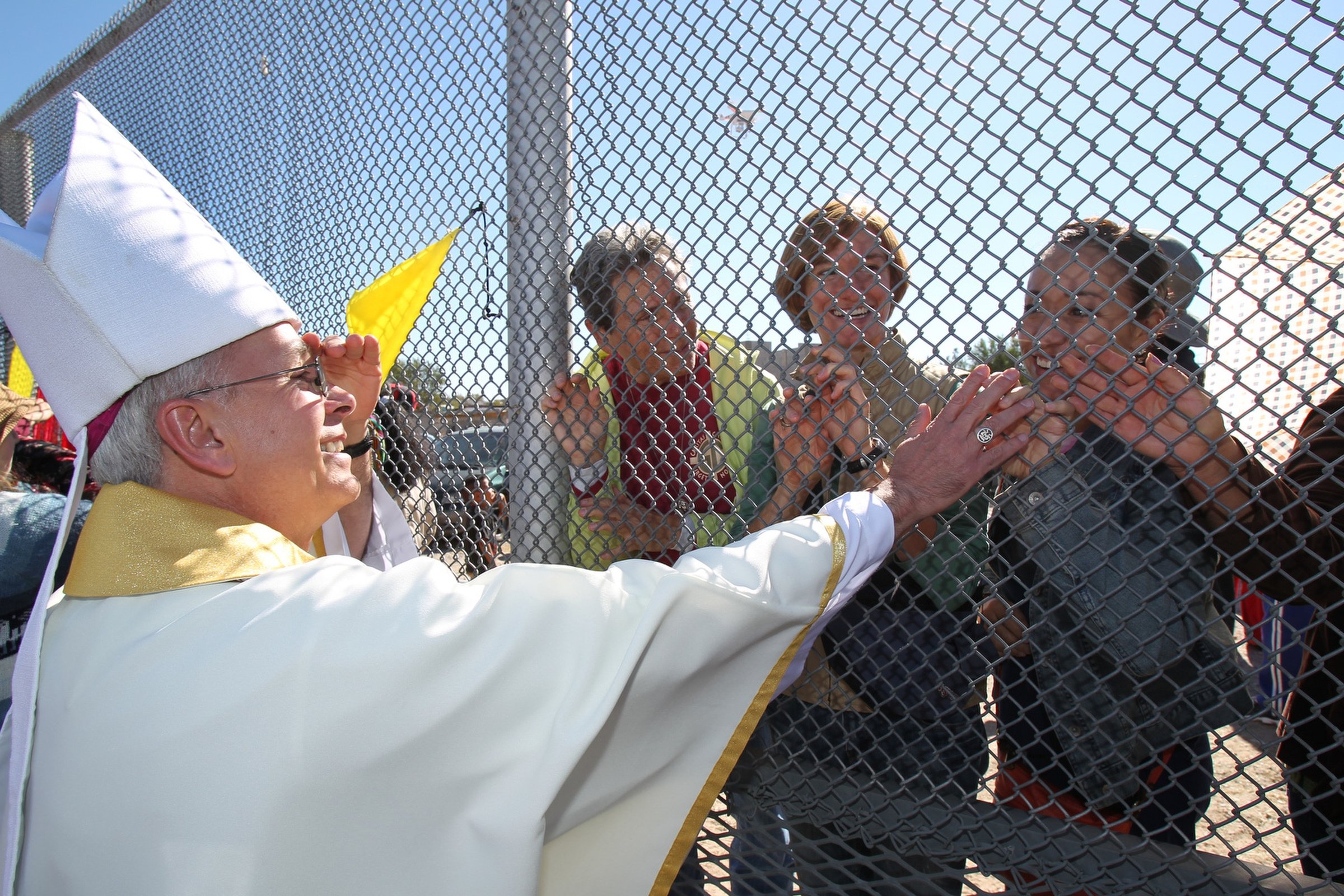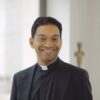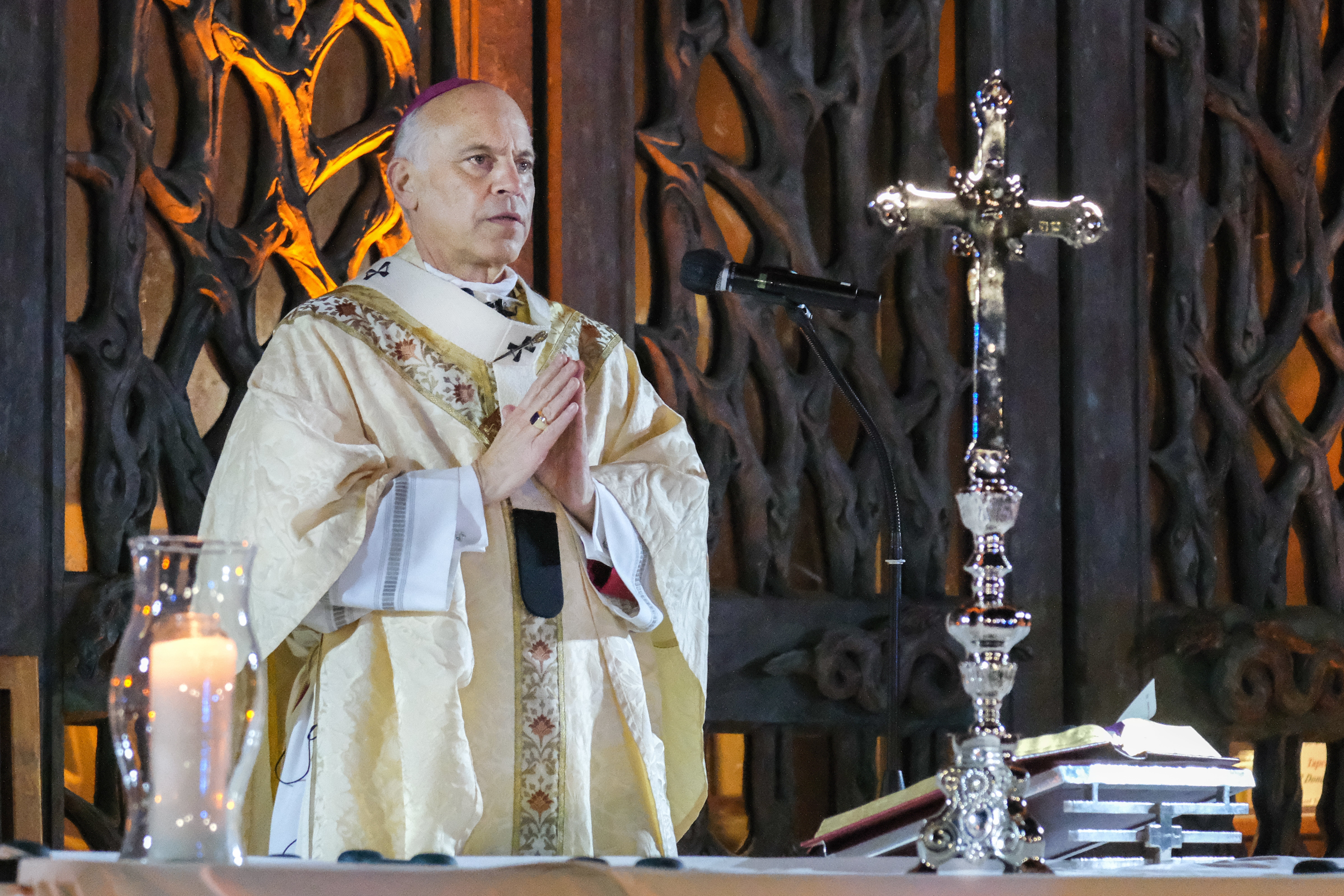WASHINGTON (OSV News) — As immigration shapes up to become a key election issue in 2024, the church must remain steadfast in its advocacy for migrants, Bishop Mark J. Seitz of El Paso, Texas, told OSV News.
Dozens of House Republicans, led by House Speaker Mike Johnson, R-La., recently kicked off the New Year with a visit to the U.S.-Mexico border as negotiations over immigration policy remain ongoing between senators and the White House. The lawmakers called for hardline immigration policies, including constructing more border walls and adding new restrictions on asylum claims by migrants.
A recent poll from The Associated Press-NORC Center for Public Affairs Research found that when asked an open-ended question about their issues of concern in the 2024 elections, a growing share of voters identified immigration.
The poll found that concerns about immigration grew to 35% among U.S. adults, up from 27% the previous year. Most Republicans, 55%, said the government should prioritize immigration issues in 2024, while 22% of Democrats responded similarly. Those shares are an increase from 45% and 14%, respectively, compared to the December 2022 poll.
Meanwhile, lawmakers in Congress have so far failed to reach a deal on an emergency spending bill to provide billions of dollars in wartime aid to Ukraine and Israel, as Republicans demand strict new policies at the U.S.-Mexico border in exchange for those funds. Catholic bishops and migrant advocates have expressed concern about that measure as the White House and the Senate seek a deal in 2024.
Bishop Seitz, who chairs the U.S. Conference of Catholic Bishops’ Committee on Migration, told OSV News that he is “certainly concerned right now about the negotiations that are going on and what is likely to result from them.” He said one of his concerns is that no legislators from the border region appear to be directly involved in the negotiations.
“The church’s concern is always with the human person,” he said. “It’s always with the person who is vulnerable and in need.”
The work of the church, Bishop Seitz said, “is really to make sure that when the politicians do their thing, when they carry on what is their responsibility in the public sector, that they have a voice speaking in their ear, as it were, a voice of conscience which we hope is guided by the Holy Spirit, helping them not to lose sight of the real human beings that are being impacted by the policies and laws that they agreed to.”
“You know, you can’t really love a number, but you can and must love a human being,” he added. “And that call doesn’t have limitations that say, ‘Well, only if they’re on your side of the border.'”
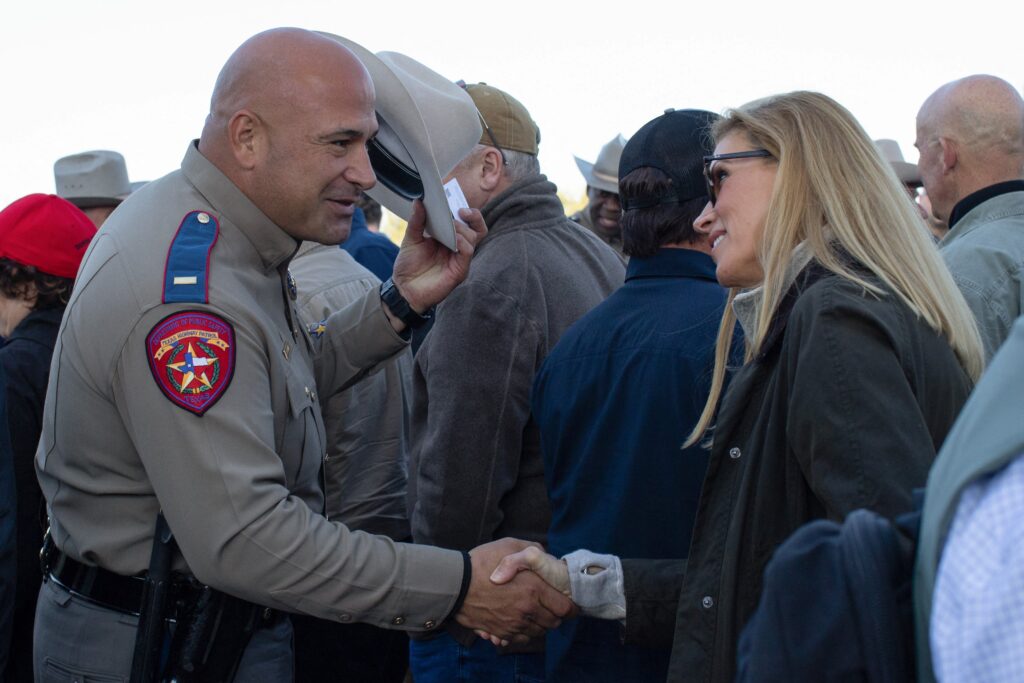
Other 2023 polls found growing partisanship on the issue of migration, with one Gallup poll finding a growing minority, or 41%, want immigration curtailed, without specifying unauthorized migration.
Anti-migrant rhetoric also has occurred during the U.S. presidential campaign. At a Dec. 17 campaign event, former President Donald Trump, who is seeking the GOP’s nomination to return to the White House and has made a hardline immigration stance part of his platform, said immigrants coming to the U.S. are “poisoning the blood of our country,” pointing to migrants from South America, Africa and Asia.
Catholic Charities USA, the organization dedicated to carrying out the domestic humanitarian work of the Catholic Church in the United States, also responded in 2023 to what it called “disturbing” violent remarks by a social media influencer suggesting Catholic Charities’ workers and volunteers should be shot for sheltering migrants.
Asked if he has concerns about the public perception of immigration as the country begins an election year, Bishop Seitz said that some people have “a very inaccurate understanding of what is really happening in regard to immigration.”
As Catholics form their consciences to vote, he suggested they should not limit themselves to “just listening to one news outlet” and should consider the lived experiences of immigrants in their communities.
“Just sit down and talk, share a cup of coffee, you know, get with somebody who can, if they don’t speak English, with somebody who can translate for you, and you’ll be amazed at the common humanity and the goodness of the people you will meet,” he said. “And I think that would be a bit of an antidote to that fear that keeps us from really dealing with these issues in a fundamentally Christian way.”
Kate Scanlon is a national reporter for OSV News covering Washington. Follow her on X (formerly Twitter) @kgscanlon.


